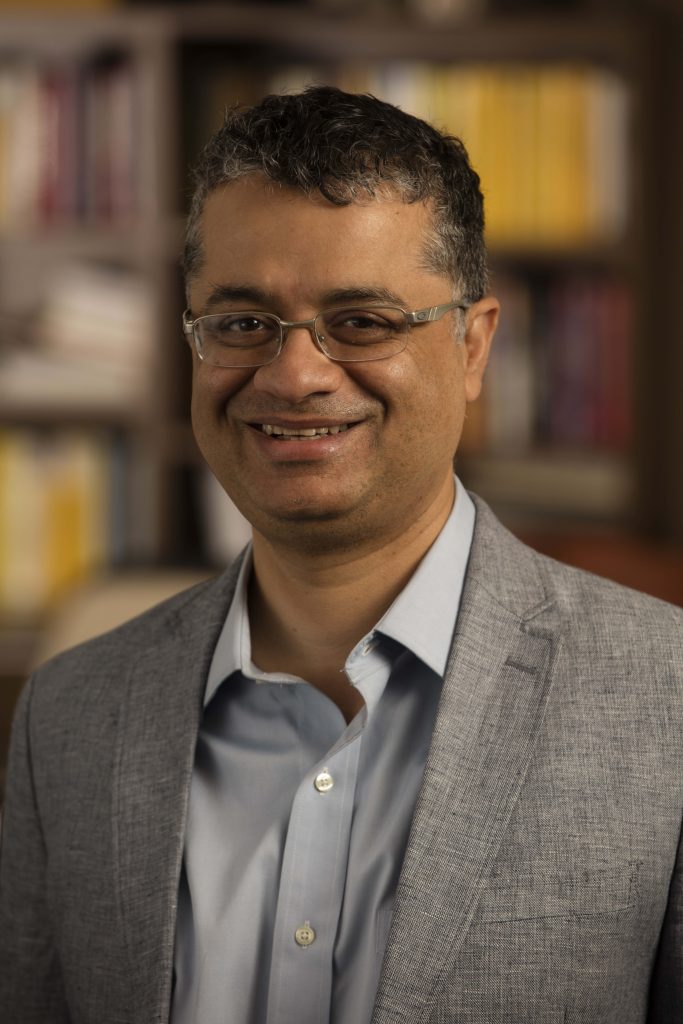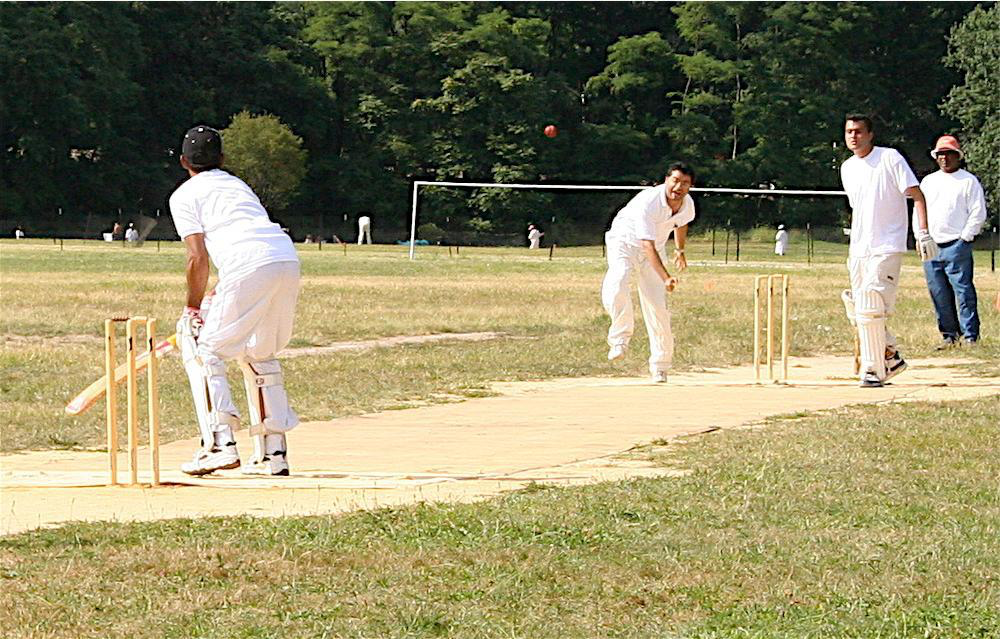Finding Ways To Study Cricket
Professor Vishal Misra is an avid fan of cricket and now works on research that looks at the vast amount of data on the sport.
“I live in two worlds – one where I am a computer science professor and the other where I am ‘the cricket guy’,” said Vishal Misra, who has been with the department since 2001 and recently received the Distinguished Alumnus of IIT Bombay award.

For the most part, Misra has kept these two worlds separate until last year when he worked on research with colleagues at MIT that forecasts the evolution or progress of the score of a cricket match.
When a game is affected by rain and is cut short, there is a statistical system in place – the Duckworth-Lewis-Stern System which either resets the target or declares the winner if no more play is possible. Their analysis showed that the current method is biased and they developed a better method based on the same ideas that are used to predict the evolution of the game. Their algorithm looks at data of past games and the current game and uses the theory of robust synthetic control to come up with a prediction that is surprisingly accurate.
The first time Misra became involved in the techie side of cricket was through CricInfo, the go-to website for anything to do with the sport. (It is now owned by ESPN.)

In the early 90s, during the internet’s infancy, fans would “meet” and chat in IRC (internet relay chat) chat rooms to talk about the sport. This was a godsend for Misra who had moved to the United States from India for graduate studies at the University of Massachusetts Amherst. Cricket was (and still is) not that popular here but imagine living in 1993 and not be able to hop onto a computer or a smartphone to find out the latest scores? He would call home or go to a bookstore in Boston to buy Indian sports magazines like Sportstar and India Today.
Through the #cricket chatrooms, he met CricInfo’s founder Simon King and they developed the first website with the help of other volunteers spread across the globe. Misra shared, “It was a site by the fans for the fans, that was always the priority.” They also launched live scorecards and game coverage of the 1996 world championships. Misra wrote about the experience for CricInfo’s 20th anniversary. He stuck with his PhD studies and remained in the US when CricInfo became a proper business and opened an office in England.
“I did a lot of coding back then but my first computer science class was the one I taught here in Columbia,” said Misra, who studied electrical engineering for his undergraduate and graduate degrees and joined the department as an assistant professor.
For his PhD thesis, he developed a stochastic differential equation model for TCP, the protocol that carries almost all of the internet’s data traffic. Some of the work he did with colleagues to create a congestion control mechanism based on that model has become part of the internet standard and runs on every cable modem in the world. Cisco took the basic mechanism that they developed, adapted it, and pushed it for standardization. “That gives me a big kick,” said Misra. “That algorithm is actually running almost everywhere.”
Since then his research focus has been on networking and now includes work on internet economics. Richard Ma, a former PhD student who is now faculty at National University Singapore, introduced him to this area. They studied network neutrality issues very early on which led to his playing an active part in the net neutrality debate in India, working with the government, regulators, and citizen activists. “India now has the strongest pro-consumer regulations anywhere in the world, which mirrors the definition I proposed of network neutrality,” he said.
For now, he continues research on net neutrality and differential pricing. He is also working on data center networking research with Google, where he is a visiting scientist. Another paper that generalizes the theory of synthetic control and applies the generalized theory to cricket is in the works. The new paper makes a fundamental contribution to the theory of synthetic control and as a fun application, they used it to study cricket.
“While I continue my work in networking, I am really excited about the applications of generalized synthetic control. It is a tool that is going to become incredibly important in all aspects of society,” said Misra. “It can be used in applications from studying the impact of a legislation or policy to algorithmic changes in some system – to predicting cricket scores!”

